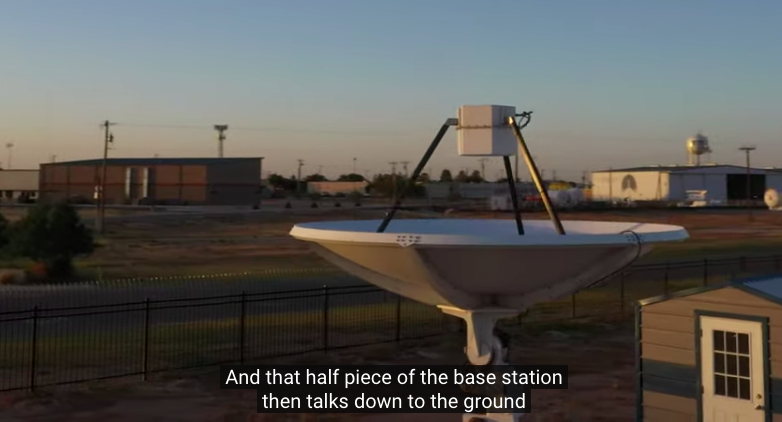Vodafone is working with U.S.-based AST SpaceMobile to plan a satellite strategy so that customers in remote locations can use their existing mobile devices to access voice and data services.
Vodafone has 300 million mobile subscribers across Europe and Africa, along with 28 million fixed broadband customers.
Vodafone's Chief Technology Officer Johan Wibergh said in a video that the company has invested in and partnered with AST SpaceMobile with the aim of closing vast coverage gaps using a planned network of satellites.
“The great innovation with AST SpaceMobile is that your phone will automatically discover the satellite, and your phone will automatically connect to the satellite, and you will be connected to the internet,” said Wibergh.
RELATED: AST's satellite service connects directly to cell phones on carriers' networks
Vodafone has almost 200,000 cell towers across its coverage area. But it’s struggled to provide service to rural areas with rough terrain and no electricity grid.
The carrier started talking to AST SpaceMobile in 2018 about the possibility of bridging the digital divide with satellites.
Wibergh said, “Today at every tower there is a base station that handles the communication with your smartphone. AST basically takes and cuts that base station in half, takes the top part that talks to your smartphone and moves it up and puts it in the satellite, and that piece talks to your smartphone. And that half piece of the base station then talks down to the ground to the half that’s left here.”

He noted that there are plenty of other satellite companies working to close the digital divide. And some of these are also working with mobile carriers. But he said, “I think what's unique in the partnership here and unique in what AST is doing is it's the only technical solution where you actually can use your existing device. All the other space-based connectivity is based on new types of devices, new types of phones. And that really limits the uptake and the cost.”
Vodafone is in a good position to tackle the challenge of closing the digital divide because it already has mobile operations in African countries where many people are unserved and where there is a growing demand for internet connectivity. Vodafone has experience dealing with different regulatory situations and working with many different vendors in Africa.
“There are 375 million young Africans expected to enter the labor market by 2030, and they will need the skills to excel in a digital economy,” said Wibergh. “If we didn't have the SpaceMobile technical solution, I think that the alternative is no connectivity.”
Vodafone is still in the planning stage with AST SpaceMobile. But Wiberg said that ultimately the carrier wants to provide a seamless experience for its customers. The satellite service would be part of a customer's mobile plan, and they would move between terrestrial and satellite coverage areas automatically.